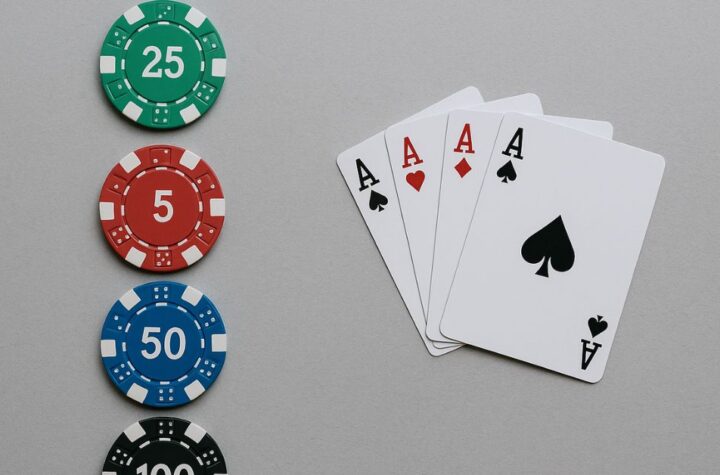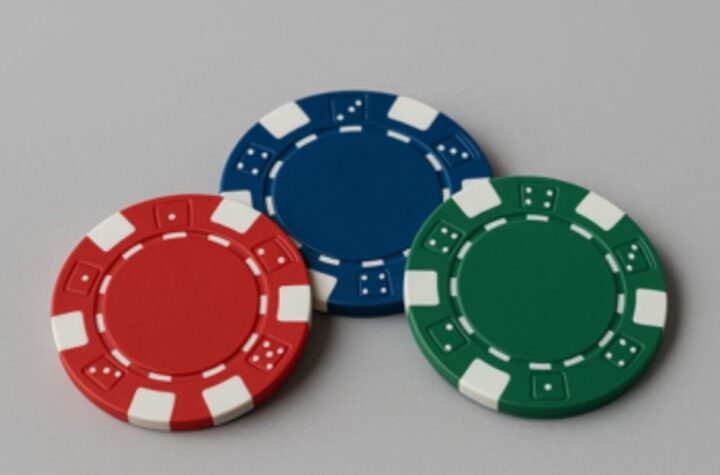
Poker, a game of skill and strategy, is like a high-stakes dance where every move matters. Yet, it’s not always about the luck of the draw. It’s about the acumen you bring to the table, your understanding of the game, and your ability to read the room. There’s always room for improvement. Here are ten ways to elevate your poker game.
Top 10 Ways to elevate your Poker Game
Mastering the Art of Patience
Patience is the cornerstone of poker success. Impulsive decisions can lead to unnecessary risks and inevitable losses. Taking time to analyze the game, evaluate your hand, and predict opponents’ strategies is essential. Patience is about waiting for the right moment to strike, when the odds are most in your favor. In poker, slow and steady often wins the race.
Reading Your Opponents
Poker is not played in a vacuum. It’s an interactive game where understanding your opponents can be as valuable as understanding your own hand. Observing physical cues, betting patterns, and even conversation can provide crucial insights into your opponents’ strategies. The ability to accurately read your opponents can turn the tide of the game in your favor.
Understanding Probability and Odds
Poker is a game of probability, and understanding this can significantly enhance your strategy. Learning how to calculate odds and understand the probability of certain hands can help you make informed decisions about whether to fold, call, or raise. The more you understand the mathematics of poker, the better equipped you are to make winning decisions.
Emotional Control
Keeping emotions in check is key to success while playing poker. Emotional decisions can cloud judgment, leading to less-than-optimal strategies. Whether you’re dealing with a string of losses or riding high on a winning streak, maintaining a level-headed approach is crucial. Emotional control allows you to make rational decisions based on facts, not feelings.
Bankroll Management
Financial discipline is crucial in poker. Knowing how to manage your bankroll effectively can help you navigate through losses and play more games, increasing your chances of winning in the long run. It’s not about the size of your bankroll, but how you manage it that counts.
Improving Your Bluffing Skills
Bluffing is a potent tool in poker, but it’s not about deceit for deceit’s sake. It’s a calculated move used to mislead opponents and turn the game in your favor. Knowing when and how to bluff effectively can make the difference between a good player and a great one.
Prioritizing Position Strategy
The position at the poker table significantly impacts your game strategy. A later position allows you to observe your opponents’ actions before making your own, providing valuable insights. It also affords you the chance to play a wider range of hands effectively. Prioritizing position strategy can significantly enhance your decision-making process in poker.
Developing Adaptability
Poker is unpredictable. Each hand dealt and each opponent faced brings a unique set of circumstances. Developing the ability to adapt your strategy based on the game’s evolution is crucial for success. This includes adjusting to different play styles, varying your own play style to keep opponents guessing, and learning to navigate both good and bad luck.
Investing in Poker Tools and Resources
Many tools and resources can help you improve your poker game. From poker odds calculators to online forums and training videos, these resources can provide valuable insights and allow you to practice strategies without risking your bankroll. Investing in these tools and resources can be a game-changer, allowing you to study the game’s nuances and implement successful strategies.
Continual Learning
The world of poker is dynamic, with new strategies and theories emerging regularly. Staying abreast of these changes and continuous learning can help you stay ahead of the curve. Reading books, joining poker communities, and watching professional games can provide a wealth of knowledge to elevate your game.
Also read, Comparing 888 Poker and PokerStars
Final Thoughts
In conclusion, elevating your poker game is a journey, not a destination. It requires patience, emotional control, keen observation skills, a solid understanding of probability, effective bankroll management, perfected bluffing skills, position strategy, bluffing, and a commitment to continual learning. By focusing on these ten areas, you can enhance your poker prowess and increase your chances of success at the table. Remember, every poker champion was once a beginner who never quit.





More Stories
Why So Many Poker Players Feel “Stuck” in 2026 (And What the Smart Ones Do Differently)
Video Poker for Interface Learners: Paytable Literacy in 10 Minutes
How to Become an Expert at Texas Hold’em